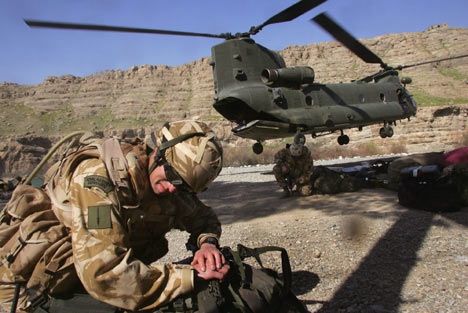WHO ARE the toughest interviewers? Who do politicians fear being interviewed by most? Jeremy Paxman, John Humphreys or Andrew Neil spring to mind, they are certainly tough cookies.
The cold statistics about the war underline this. In the Twin Towers 67 British citizens were killed; to date 433 British soldiers have been killed in Afghanistan. As the war has lost focus the costs have increased exponentially.
Paxman might win a public ballot; his recent reduction of Chloe Smith, the then Treasury Minister, to a gibbering wreck having gone viral on the internet. But most politicians agree that Paxman and Co are not to be nearly as feared as a class of ten year olds.
Their questions invariably get right to the heart of the matter.
Any Member of Parliament who can’t give a clear, straightforward answer to a question in two or three sentences immediately loses all credibility with obvious and dire consequences. Ten year olds have in-built, super tuned bullshit detectors. It is not just the MP who is tested during these scary ordeals but the policy being discussed.
So I knew when asked recently by a ten year old boy ‘why have we got lots of soldiers in Afghanistan?’ that if I trotted out the bipartisan policy of the Labour front bench and the Government every ten year olds' bullshit detector within hearing range would be triggered.
It is simply impossible to explain and justify a war that has lasted longer than the Second and First World Wars combined, taking place more than 4,000 miles away. This is presumably why the justification for having nearly 10,000 soldiers fighting in Afghanistan has changed annually.
The initial justification given by the USA and UK to the United Nations was as an act of self defence in response to 9/11 that would include ‘measures against Al-Qaeda terrorist training camps and military installation of the Taliban regime in Afghanistan’.
Put bluntly, to find, capture or kill Osama Bin Laden. Enduring Freedom was the military operation to achieve these aims, launched on 7 October 2001. Bin Laden escaped through the Tora Bora mountains two months later. He was finally killed in Pakistan in May 2011.
Other reasons had to be invented for the continuing deployment of troops in Afghanistan. This list is by no means exhaustive; to keep our streets free of heroin, to educate girls who had been excluded from education on punishment of death by the Taliban, to reduce the chance of terrorism in the United Kingdom, to build democracy, to help improve relations between India and Pakistan, to bring stability to the region.
Two minutes thought shows each of these reasons to be comprehensively bogus. Of course the real reason apart from inertia is our political parties lack courage. How can you tell the grieving family of a dead or seriously injured soldier that for more than a decade there has been no justification for this military adventure?
The cold statistics about the war underline this. In the Twin Towers 67 British citizens were killed; to date 433 British soldiers have been killed in Afghanistan. As the war has lost focus the costs have increased exponentially.
The net spending on military operations in Afghanistan in 2011/12 was £4.1 billion which is five times the amount of money spent during the first six years of the war. While nobody has a crystal ball it is unlikely that the corrupt regime of President Hamid Karzai will last more than weeks after the withdrawal of NATO soldiers.
The honest answer to the school boy’s question is that adults make mistakes and this mistake has cost northwards of £21 billion and many more lives than were lost in the Twin Towers.
 Graham StringerIt is better to be honest about this now and say sorry rather than wasting more money and lives. There is a real political and financial dividend for any government or potential government who are brave enough to take this stance. It is a shocking indictment of our politics how weakly the case for peace and withdrawal has been made when the supporting facts are so strong.
Graham StringerIt is better to be honest about this now and say sorry rather than wasting more money and lives. There is a real political and financial dividend for any government or potential government who are brave enough to take this stance. It is a shocking indictment of our politics how weakly the case for peace and withdrawal has been made when the supporting facts are so strong.
Ed Milliband’s speech to the Labour Party conference in Manchester was a tour de force, but it wasn’t comprehensive. The applause in the hall would have been longer and louder had he announced that there was to be a bigger cut in the defence budget; he after all won the election as leader by claiming he had opposed the Iraq war.
How much better to decry the £30 billion wasted in Iraq and Afghanistan and explain that now is not the time for this country to support a defence budget larger than Russia’s.











